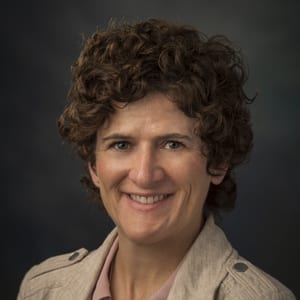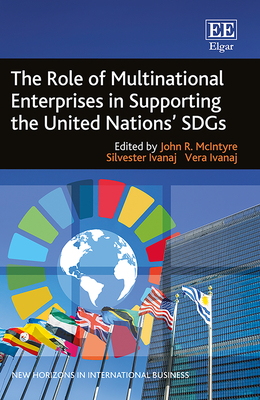
About the Series
Georgia’s deep pool of international expertise is sometimes hidden in the ivory towers of academia or overshadowed by looming national figures. Sought-after thought leaders sometimes shine globally while being ignored in their own backyard.
With Authors Amplified, a monthly series of book talks, we showcase authoritative local voices in foreign affairs and international business while highlighting the state’s intellectual contributions to important global conversations.
The Atlanta Global Studies Center is proud to partner with Global Atlanta to present this series.
2024 Events


October
Allen Fromherz, Professor of Middle East, Gulf, and Mediterranean history and Director of the Middle East Studies Center at Georgia State University
"The Center of the World: A Global History of the Persian Gulf from the Stone Age to the Present" (2024)


July 17
Irene Browne, PhD - Director of Graduate Studies, Associate Professor of Sociology, Emory University
Precarious Privilege
2023 Events


Oct 24
Leslie Marsh, PhD – Director of the Center for Latin American and Latino/a Studies, Associate Professor and Chair of World Languages & Cultures, Georgia State University
Branding Brazil: Transforming Citizenship on Screen
Leslie Marsh
Read more about the book and author
About the Book
Branding Brazil examines a panorama of contemporary cultural productions including film, television, photography, and alternative media to explore the transformation of citizenship in Brazil from 2003 to 2014. A utopian impulse drove the reproduction of Brazilian cultural identity for local and global consumption; cultural production sought social and economic profits, especially greater inclusion of previously marginalized people and places. Marsh asserts that three communicative strategies from branding–promising progress, cultivating buy-in, and resolving contradictions–are the most salient and recurrent practices of nation branding during this historic period. More recent political crises can be understood partly in terms of backlash against marked social and political changes introduced during the branding period. Branding Brazil takes a multi-faceted approach, weaving media studies with politics and cinema studies to reveal that more than a marketing term or project emanating from the state, branding was a cultural phenomenon.
About the Author
Leslie Marsh specializes in Hispanic and Lusophone film and media studies. Her research focuses on visual practices (film, television, photography and alternative media) that pose challenges to the boundaries of belonging and intervene in the creation of new political imaginations. Another area of specialization is Hispanic and Lusophone women’s cultural production. Her book Brazilian Women’s Filmmaking: From Dictatorship to Democracy (University of Illinois Press, 2012) examines the diverse practices of women filmmakers in Brazil from the military dictatorship to the present. She also co-edited two books. The project “Building the BRICS: Media, nation branding and global citizenship,” co-edited with Dr. Hongmei Li (Communications, GSU), examines new collaborations and directions of ‘power’ (i.e., South-South, North-South, and East-West interactions) and the social, cultural and political transformations taking place in and between emerging nations. The project “The Middle Class Phenomenon in Emerging Markets: Consumers, lifestyles and social transformation,” co-edited with Dr. Hongmei Li (Communications, GSU) and Dr. Ilke Kardeş (International Economics, University of Dusseldorf) explores marked economic transformations in emerging nations and its broader impact on social, cultural and political attitudes and practices.

May 23 | 11:00 am - 12:00 pm
John R. McIntyre, PhD – Professor & Executive Director of GT CIBER, Georgia Tech
The Role of Multinational Enterprises in Supporting the United Nations' SDGs
John McIntyre
Read more about the book and author
About the Book
Transnational corporations play a role in the design, diffusion, and consolidation of sustainable development in the context of globalization and multinational firms. In this timely book European and American contributors analyze this role and explore the complex and dynamic phenomena of economic, political, cultural and legal interactions involved.
In order to understand this interplay, the authors examine the practices and organizational behaviors used by multinationals in sustainable development. They also discuss the evolving concepts that multinationals hold about sustainable development and corporate social responsibility and how companies reaffirm these philosophies through their strategy and organizational practices such as human resource development, marketing, supply chain, information technology, law, and communications. The authors outline an approach to help identify the key details and motivating factors in decision making.
Scholars, students and policy analysts in the fields of business, ecology, economic development and developmental economics and consultants focusing in corporate planning and strategic analysis will find this original collection of great value.
About the Author
Dr. John R. McIntyre is founding Director of the Georgia Tech Scheller College of Business Center for International Business Education and Research (CIBER), professor of management (strategy area) with a courtesy appointment in international relations in the Georgia Tech’s Sam Nunn School of International Affairs. He received his graduate education at Northeastern University, completing his Ph.D. at the University of Georgia.
Prior to joining Georgia Tech in September 1981, he was research associate for international management at the Dean Rusk Center of the University of Georgia Law School. He has published in journals such as Technology and Society, Public Administration Quarterly, International Management Review, Defense Analysis, Studies in Comparative and International Development, The Journal of European Marketing, Politique Internationale, International Executive, International Trade Journal, among others.
Author or coauthor of the following books: Uncertainty in Business-Government Relations: The Dynamics of International Trade Policy, The Political Economy of International Technology Transfer, International Space Policy: Legal, Economic, and Strategic Options for the Twentieth Century and Beyond, Japan’s Technical standards: Implications for Global Competitiveness, Business and Management Education in China: Transition, Pedagogy and Training, A Handbook: Business and Management Education in Transitioning and Developing Country, Globalization of Chinese Enterprises, The Multinational Enterprise and the Challenge of Sustainable Development.
His professional memberships include: Sigma Xi, The Academy of International Business, The Academy of Management, Policy Studies Organization, The American Society for Public Administration. He is the recipient of the State of Georgia Governor’s 2009 International Award in international business education in 2009.
Dr. McIntyre is an expert on the primary aluminum industry. He is fluent in French, Italian, and Spanish.

April 14 | 1:00 - 1:45 pm
Mike Dobbins, FAICP, FAIA – Professor of the Practice, School of City & Regional Planning, Georgia Tech
Atlanta's Olympic Resurgence: How the 1996 Games Revived a Struggling City
Mike Dobbins
Read more about the book and author
About the Book
The summer of 1996. In nineteen days, six million visitors jostled about in a southern city grappling with white flight, urban decay and the stifling legacy of Jim Crow. Six years earlier, a bold, audacious partnership of a strong mayor, enlightened business leaders and Atlanta's Black political leadership dared to bid on hosting the 1996 Olympic Games. Unexpectedly, the city won, an achievement that ignited a loose but robust coalition that worked collectively, if sometimes contentiously, to prepare the city and push it forward. This is a story of how once-struggling Atlanta leveraged the benefits of the Centennial Games to become a city of international prominence. This improbable rise from the ashes is told by three urban planning professionals who were at the center of the story.
About the Author
As a planner, urban designer, architect, and teacher, Mike Dobbins has practiced mainly in the public sector over the last 50 years. He has directed planning, design, and development programs in New York City, New Orleans, Birmingham, UC Berkeley, and he was the Commissioner of Planning, Development, and Neighborhood Conservation for Atlanta during the Olympics and for six years following. He taught architecture for two years at Tulane, had teaching assignments at Columbia, Birmingham Southern College, and UC Berkeley, and presently is a professor of practice in the School of City and Regional Planning at Georgia Tech’s College of Design.
Through this practice, he believes that ordinary citizens can, will, and must be the ones who make the difference in improving the shape and livability of our urban environment. In these chaotic times, the interplay between the private sector, the government and the citizenry is out of balance, tilting away from meeting everyday people’s needs. People must use available information sources as well as commonsense to be heard and to insist that their real life needs guide public policy. We need to be wary of the latest wave of “experts” whose “solutionism” often comes without an understanding of the problem, threatening communities in ways similar to the urban renewal and other top down so called “solutions” from the past.
March 30 | 2:30 - 3:15 pm
Mona Tajali, PhD – Associate Professor of International Relations and Women's, Gender, and Sexuality Studies, Agnes Scott College
Women’s Political Representation in Iran and Turkey: Demanding a Seat at the Table
Mona Tajali
Read more about the book and author
About the Book
How have women in many Muslim-majority countries been able to achieve surprising success despite the significant constraints imposed by conservative gender ideology and authoritarian political parties and systems? Through a comparative focus on Iran and Turkey, Mona Tajili examines the activities and strategies of women’s rights groups across the ideological spectrum. She explores how various groups have negotiated with political elites in order to bolster female political representation and identifies the conditions that stimulate greater support to ease women’s path to political office. Studying how women’s groups manoeuvre within these structures is important to help our understanding of the gendered politics of autocratic regimes.
About the Author
Dr. Mona Tajali is associate professor of international relations and women’s, gender, and sexuality studies at Agnes Scott College in Atlanta, Georgia. She has authored (with Homa Hoodfar) Electoral Politics: Making Quotas Work for Women (WLUML 2011), and several scholarly articles on gender and politics in the Middle East. Since 2007, she has been collaborating with the research wing of Women Living Under Muslim Laws (WLUML) transnational solidarity network and since 2019 serves as a member of its executive board.




